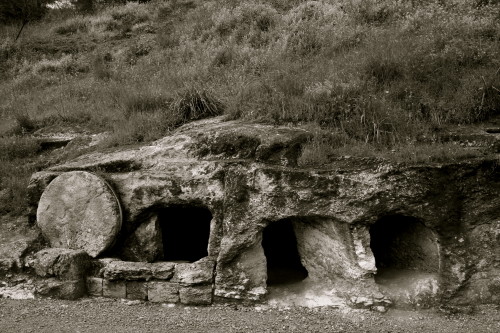 As director of a Bible school in the Philippines, I got together with a group of teachers every Friday afternoon. We talked about the progress of the students, challenges in the classroom, and it was a time for me to mentor them.
We worked on ways to improve our teaching and mentoring of the students. At one of these meetings, I shared about the importance of having a message theme—the primary truth and focus of a message.
As director of a Bible school in the Philippines, I got together with a group of teachers every Friday afternoon. We talked about the progress of the students, challenges in the classroom, and it was a time for me to mentor them.
We worked on ways to improve our teaching and mentoring of the students. At one of these meetings, I shared about the importance of having a message theme—the primary truth and focus of a message.
I had them review Peter's message, as he spoke to the crowd gathered at the Feast of Pentecost (Acts 2:5-16). The goal was to identify Peter's message theme (Acts 2:22-36). At first, they had a hard time with it.
Sometimes we miss the obvious
They came up with all sorts of ideas the first time they reviewed the text. None of them saw the focus of Peter's message.
Sometimes we listen or look so hard at the truth, we miss the simple and obvious.
I encouraged them to look through Peter's message again, and to look for the truth repeated throughout it. I told them to look for five obvious references to this truth.
One by one, they looked up as they realized what it was. It was so clear and obvious but seemed hidden from their understanding. Why? They were focused on what they were convinced of already.
I've found this to be true over and over again, both for myself and others in the process of discerning the truth in the Bible. It's hard for us to set aside preconceived ideas and assumptions.
It's hard to see beyond what we've been taught to see.
Seeing the obvious
Last week my post ended with a short quiz of two questions, one multiple-choice and one open-ended. The first question had five choices and asked which important truth gets neglected.
I really enjoyed the responses and input I saw, and hope it got you thinking, even if you didn't respond. The second one asked what the central most important truth is in the Christian faith.
Getting back to my story with the teachers, what was the primary focus of Peter's message? The resurrection of Jesus!
Peter makes at least five explicit references to the resurrection in his message (Acts 2:24, 25-27, 30-31, 32, 33, 36).
How the resurrection is essential
I see the resurrection as essential to the other four truths in the multiple-choice question. Actually, the resurrection is essential to the gospel and the biblical story of redemption throughout the Bible.
When the truth of the Lord's resurrection is over-looked or neglected, it has a major impact on both our theology and walk of faith. Here's a few of the impacts—
- The central focus of the gospel message of the early church, as seen throughout Acts, is diminished (Acts 1:21-22; 2:22-36; 4:10, 33; 10:34-43; 13:26-39; 17:22-32; 23:6).
- The effective work of the Lord's death on the cross is nullified (1 Cor 15:14-17).
- It's directly connected with the reason why we have a living hope—our own resurrection and hope of eternal life (1 Peter 1:3).
- The resurrection is essential to our relationship with Jesus in our everyday life (Eph 2:1-10; Col 2:11-12; 3:1-4).
The resurrection is essential to the gospel and the biblical story of redemption throughout the Bible
Connected and essential
So, how is the resurrection of Christ related to the other four truths from the quiz last week?
The fear of God—the impact of Christ's miraculous resurrection reminds us of God's awesome power and might.
A call to repentance—the promise of new life, reconciliation and restoration through redemption requires repentance, which was an essential part of Jesus' gospel message.
Eschatology and prophecy—the central message of many of the parables of Jesus, and the OT prophets, is that an end of the age is coming with a final resurrection.
Prayer—our vital communication with God is founded on trust in Him based on hope. Why do we hope? As Job said in the midst of his suffering, "I know that my Redeemer lives, and He shall stand at last on the earth" (Job 19:25).
Looking ahead
As mentioned above, the bodily resurrection of Jesus from the dead enables us to have a true, living hope—to be confident of a future in this life and beyond.
My hope is that some of what I've shared will help you see how vital the resurrection is to our relationship with Jesus. I also hope to explore more of this in coming weeks.
At least two of these truths are either neglected or misrepresented, so I want to look at them more closely—the fear of God and repentance. When was the last time you heard a message on either one of these?
Again, let me know your thoughts and feedback. If this post (or this blog) is helpful, please share it with others.
Here's a chapter excerpt from my book on one of the chapters about the resurrection—feel free to download it—Chap-11_A-Living-Hope Also, if you like it, consider getting the whole book—the e-version is only 99 cents!
Thanks for reading... and sharing!



